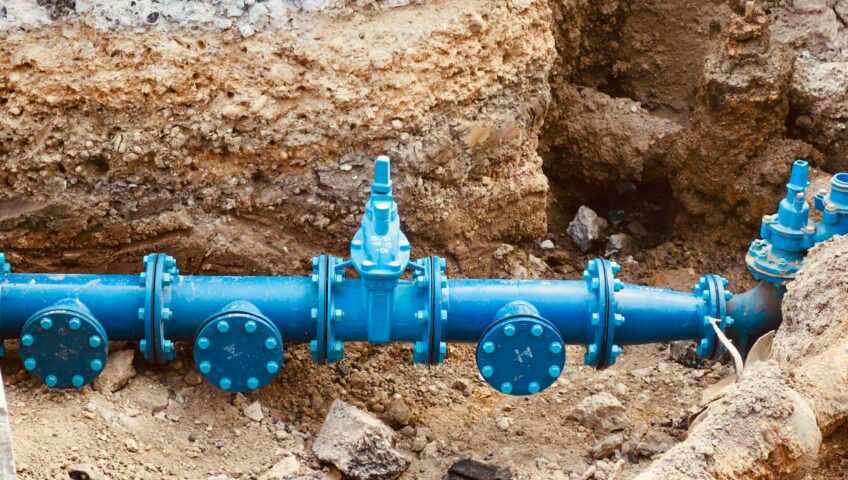Utility infrastructure serves as the backbone of modern society, encompassing the essential systems that provide us with water, electricity, gas, telecommunications, and proper waste management. As our communities continue to grow and evolve, the demand for efficient, reliable, and sustainable utility infrastructure becomes crucial. Civil construction services play an instrumental role in establishing and maintaining these vital systems, ensuring our communities remain connected and well-served.
In this comprehensive guide, we will discuss everything you need to know about utility infrastructure, including the various components involved, the role civil construction services play in their establishment, and the importance of incorporating eco-friendly practices throughout the process. Join us as we explore the world of utility infrastructure and learn how civil construction services contribute to building and maintaining the essential systems that bolster modern living.
1. Water and Sewer Systems: The Foundations of Public Health and Safety
Water and sewer systems are among the most critical components of utility infrastructure, as they provide communities with access to clean drinking water and ensure the proper disposal of wastewater. Civil construction services are responsible for the installation, maintenance, and repair of these essential networks.
In the construction of water and sewer systems, various factors are taken into consideration, such as population density, the local environment, and potential future growth. Pipes and pump stations are strategically placed to maximise efficiency and minimise environmental impact. Regular maintenance is crucial to prevent pipe degradation, leaks, and blockages, which could lead to water shortages or contamination.
2. Electrical and Gas Networks: Powering Our Communities
Electrical and gas networks consist of intricate systems of cables, pipelines, and substations that deliver power and heating to homes, businesses, public spaces, and infrastructure. Civil construction services play a vital role in establishing these networks and ensuring their efficient and safe operation.
While building and maintaining electrical and gas networks, it’s essential to consider the surrounding environment, potential hazards and to meet regulatory requirements. Underground installations, for example, must take into account soil conditions, while overhead installations must be designed to withstand adverse weather conditions.
3. Telecommunications Infrastructure: Connecting Our Communities
Telecommunications infrastructure forms the backbone of modern connectivity, enabling information exchange, internet access, and telephone services. Civil construction services are involved in the design, installation, and maintenance of these systems, which include fibre-optic cables, signal towers, data centres, and other related equipment.
To ensure the efficient and reliable operation of telecommunications infrastructure, civil construction services must carefully plan cable routes, cell tower locations, and other crucial components, taking into account geographical features, existing infrastructure, and population needs. Moreover, adhering to eco-friendly practices and industry regulations is vital to minimise the environmental impact of telecommunications infrastructure.
4. Stormwater Management Systems: Safeguarding Our Environment
Effective stormwater management is critical for preventing flooding, erosion, and water pollution, all of which can have long-lasting effects on local ecosystems and communities. Civil construction services are responsible for designing and implementing stormwater management systems that capture, filter, and safely release runoff water.
Components of stormwater management systems include catch basins, retention ponds, infiltration trenches, and permeable surfaces. These structures and techniques help control the volume and speed of stormwater runoff, prevent surface and groundwater contamination, and preserve the integrity of nearby ecosystems.
5. Sustainable Materials and Practices: A Pledge for Green Utility Infrastructure
With the growing awareness of environmental issues and the need to preserve our planet for future generations, it’s essential to implement sustainable materials and practices in civil construction projects. Using recycled materials, reducing waste, and ensuring energy efficiency are just a few ways to build more sustainable utility infrastructure.
Environmentally responsible civil construction involves the ongoing evaluation and implementation of new technologies and materials that can minimise the carbon footprint of projects. By embracing sustainable practices, civil construction services can help create a greener future for Abbotsford and the entire Lower Mainland of British Columbia.
Building a Sustainable Future with Eco-Friendly Civil Construction Services
As modern society continues to rely heavily on utility infrastructure, it’s essential to recognise the importance of environmentally responsible civil construction in ensuring the sustainability of our communities. Investing in eco-friendly practices benefits not only the residents of Abbotsford and the Lower Mainland of British Columbia but also contributes to building a better, cleaner future for the entire planet.
At New Wave Earth Works, our commitment to sustainable civil construction services leads the charge of providing eco-friendly utility infrastructure for our growing communities. Our expertise in developing water and sewer systems, electrical and gas networks, telecommunications infrastructure, and stormwater management systems makes us the ideal partner for utility infrastructure projects that prioritise the environment.
Ready to embark on a utility infrastructure project with a strong focus on environmental sustainability? Contact us today to discuss how, together, we can make a lasting, positive impact on our communities and our world.


